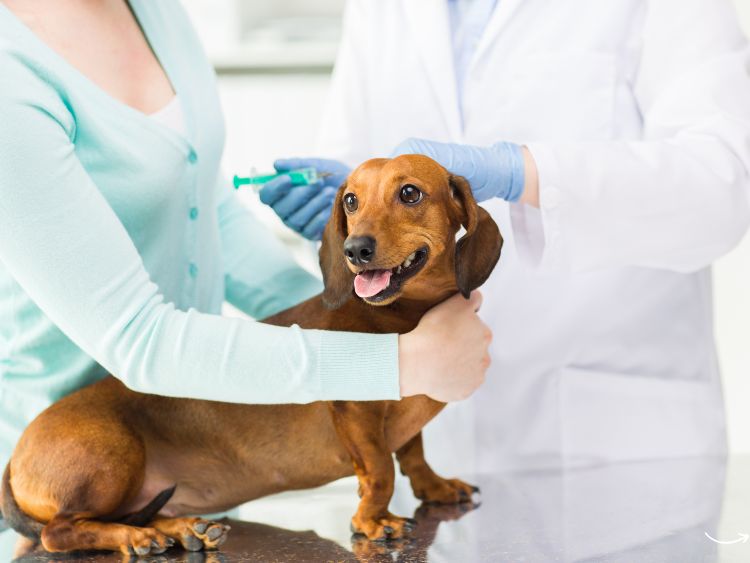Hey there, fellow pet lover! If you’ve ever taken your furry friend to the vet, you’ve probably heard about the importance of vaccinations. But, do you know what your pet vaccination record is and why it’s so crucial? Well, buckle up, because we’re diving into everything you need to know about this essential document.
What is a Pet Vaccination Record?
A pet vaccination record is a detailed document that tracks all the vaccinations your pet has received. This record includes crucial information like the type of vaccine, the date it was administered, the next due date, and sometimes even the batch number of the vaccine. In essence, it’s your pet’s health passport, ensuring they stay protected against various diseases.
Why Keep a Pet Vaccination Record?
Wondering why you should bother keeping a pet vaccination record? Here are some compelling reasons:
- Health Monitoring: It helps you keep track of your pet’s vaccination schedule, ensuring they are always up-to-date with their shots.
- Legal Requirements: Many places require proof of vaccination for licensing and travel.
- Emergency Situations: In case of an emergency, having a detailed vaccination record can be crucial for effective treatment.
- Peace of Mind: Knowing your pet is protected against preventable diseases provides peace of mind.
Key Components of a Pet Vaccination Record
Let’s break down the essential components of a pet vaccination record so you can understand what to look for.
Basic Information
- Pet’s Name
- Breed
- Age
- Microchip Number (if applicable)
Vaccination Details
- Type of Vaccine: This includes vaccines for rabies, distemper, parvovirus, and more.
- Date Administered: When the vaccine was given.
- Next Due Date: When the booster shot is needed.
- Veterinarian’s Details: The name and contact information of the vet who administered the vaccine.
- Batch Number: Sometimes included for tracking purposes.
Example of a Vaccination Record Entry
Here’s a quick example of what a single entry in a pet vaccination record might look like:
- Vaccine: Rabies
- Date Administered: 01/15/2024
- Next Due Date: 01/15/2025
- Veterinarian: Dr. John Doe, ABC Animal Clinic
- Batch Number: R12345
Common Vaccinations for Pets
Pets require various vaccinations to stay healthy. Here’s a rundown of the most common ones.
Dogs
- Rabies: Legally required and crucial for preventing a deadly disease.
- Distemper: Protects against a severe viral illness.
- Parvovirus: Guards against a highly contagious virus.
- Adenovirus: Prevents infectious hepatitis.
Cats
- Rabies: Also required for cats.
- Feline Distemper (Panleukopenia): Protects against a deadly disease.
- Feline Herpesvirus and Calicivirus: Prevents respiratory infections.
- Feline Leukemia Virus (FeLV): Recommended for outdoor cats.
How to Keep Your Pet Vaccination Record Up-to-Date
Keeping your pet vaccination record up-to-date is crucial for their health and legal compliance. Here are some tips:
Regular Vet Visits
Schedule regular visits to the vet and make sure to update the record every time your pet gets a new vaccine.
Digital Records
Consider maintaining a digital copy of your pet vaccination record. Many vet clinics offer online portals where you can access and update your pet’s health records.
Reminders and Alerts
Set up reminders for upcoming vaccinations. You can use apps, your phone’s calendar, or even a good old-fashioned sticky note on the fridge.
The Importance of Accurate Pet Vaccination Records
Accurate records ensure that your pet gets the right vaccinations at the right times. This accuracy is vital for:
- Preventing Over-Vaccination: Ensuring your pet doesn’t receive unnecessary additional doses.
- Traveling: Many countries and states require up-to-date vaccination records for entry.
- Boarding and Daycare: Most pet boarding facilities and daycares require proof of vaccinations to ensure the health of all animals in their care.
FAQs About Pet Vaccination Records
What happens if I lose my pet vaccination record?
If you lose your pet vaccination record, contact your vet. They typically keep records and can provide a replacement.
Can I travel with my pet without a vaccination record?
Most travel regulations require an up-to-date vaccination record, especially for international travel. Always check the specific requirements of your destination.
Are digital vaccination records accepted?
Yes, many places accept digital vaccination records, but it’s always a good idea to have a printed copy as well.
How often should my pet get vaccinated?
The frequency of vaccinations depends on the type of vaccine and your pet’s health. Your vet will provide a schedule specific to your pet’s needs.
Can my pet have adverse reactions to vaccines?
While adverse reactions are rare, they can happen. Common side effects include mild fever, lethargy, and localized swelling. Severe reactions are very rare but can include allergic reactions. Always monitor your pet after vaccination and consult your vet if you notice any concerning symptoms.
Summary
Keeping an up-to-date pet vaccination record is a simple yet powerful way to ensure your furry friend’s health and safety. From tracking their vaccination schedule to complying with legal requirements, this record is a vital tool for every pet owner. So, make sure to keep it current and consult your vet regularly. Your pet will thank you for it!
Authoritative Links
Here are some authoritative sources for further reading on pet vaccinations:
- American Veterinary Medical Association (AVMA) – www.avma.org
- Centers for Disease Control and Prevention (CDC) – www.cdc.gov
- World Health Organization (WHO) – www.who.int
- PetMD – www.petmd.com
- ASPCA – www.aspca.org



